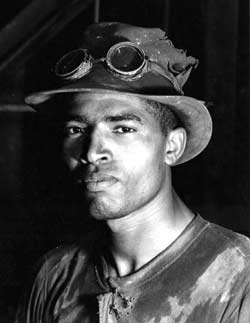Oral History Resources

The Oral History Association defines oral history as "a method of gathering and preserving historical information through recorded interviews with participants in past events and ways of life." Oral history, therefore, is not simply recorded speech; it is an interview, an exchange between an interviewer, who asks questions, and an interviewee or narrator, who responds to these questions.
The interview is also recorded with the intent of preserving it for the record, as part of our collective store of knowledge about the past. An interview becomes an oral history only after has been recorded and made available to the public. Availability for general research, reinterpretation, and verification thus defines oral history.
Three other qualities generally distinguish oral history from other forms of interviewing. First, it is historical in intent; it is grounded in historical questions deemed of some significance and seeks information and insight into these questions from the interviewee. Second, oral history recognizes an element of subjectivity; interviews record memories of the past, not the unmediated facts of "what happened." An interview, therefore, is a highly personal interpretation of the past, valuable precisely for the insight it gives into the individual's perspective. Third, an oral history interview is understood as in inquiry in depth. It is not a casual conversation, a pleasant little trip down memory lane, but a planned, serious, and searching exchange, one that seeks a detailed, expansive, and reflective account of the past.
Conducting an oral history interview involves a lot more than putting a tape recorder in front of someone and asking the person to talk about their experiences – they're likely to respond, "Well, what do you want to know?" Conducting an interview thus requires thorough preparation, a skill in interviewing, careful follow up (including transcribing or summarizing the interview), and the placement of the recorded interview and transcript (or summary) in an appropriate Archival repository.
There is no such thing as a perfect interview: even the most knowledgeable and prepared interviewer must make a series of judgment calls in the moment of the interview – what question to ask next and how to ask it, when and how to probe, or how to move in and out of sensitive topics. The best interviews have a measured, thinking-out-loud quality, as perceptive questions work and rework a particular topic, encouraging the narrator to remember details, or seeking to clarify that which is muddled. The best interviewers listen carefully between the lines of what is said for what the narrator is trying to get at and then have the presence of mind, sometimes the courage, to ask the hard questions. Yet all interviews are shaped by the context within which they are conducted as well as the particular interpersonal dynamic between narrator and interviewer: an interview can be a history lecture, a confessional, a verbal sparring match, an exercise in nostalgia, or any other of the dozens of ways people talk about their experiences.
The purpose of this website is to provide resources to parties interested in learning more about conducting oral history and the diverse oral history collections that Pennsylvania has to offer. The contents of these pages are not designed to be the definitive source on oral history, but are merely intended to help us in our journey to record the fascinating world that is transpiring around us.
Related Links
- Oral History Release Form (MS Word): Example release form for use of oral history interviews
- Oral History Collections (PDF): List of other oral history collections in Pennsylvania
- State Archives Holdings: The State Archive's Oral History Collection consists of taped interviews conducted throughout the Commonwealth of Pennsylvania by staff members and Friends of the PHMC